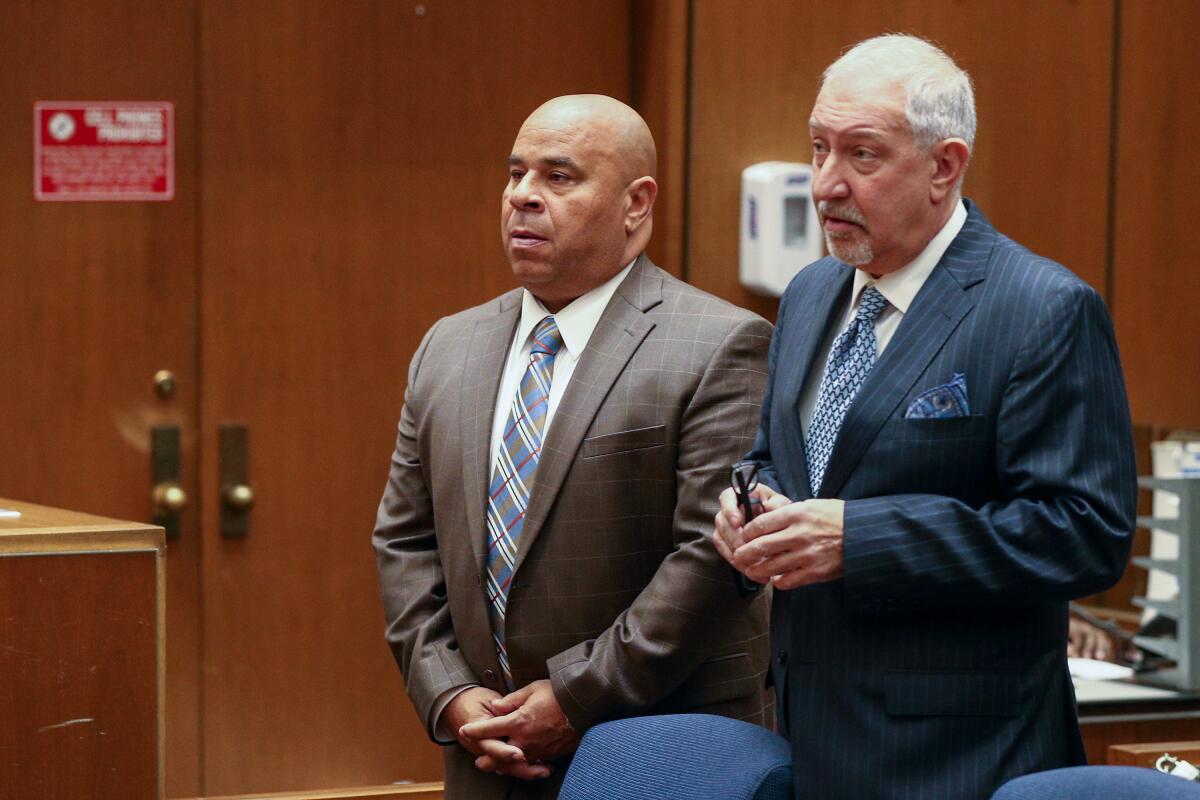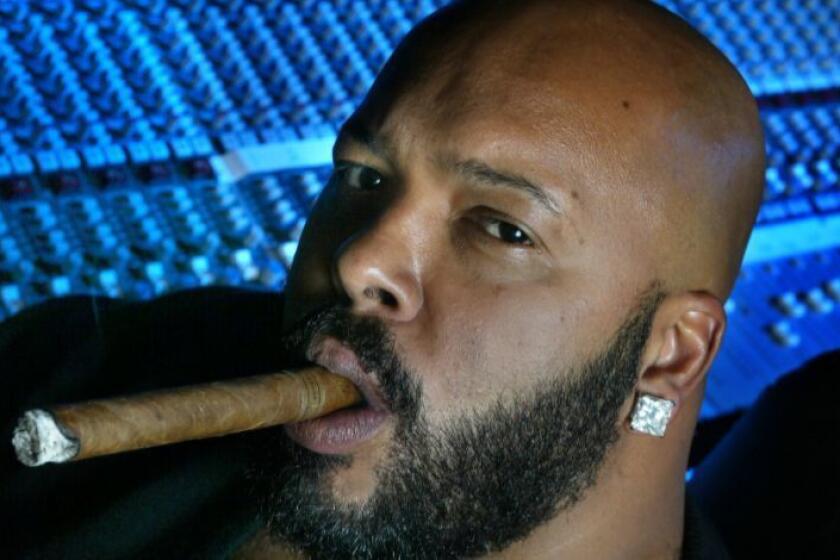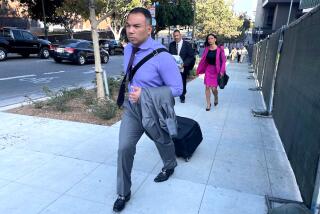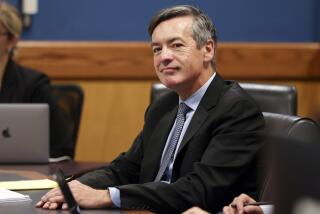Suge Knight’s former attorney takes plea deal, is barred for life from practicing law

- Share via
Marion “Suge” Knight’s former attorney pleaded guilty to conspiracy and perjury charges Wednesday and will be barred from practicing law for life after prosecutors accused him of plotting to bribe witnesses so they would lie for the rap mogul when he faced murder charges in 2016.
Prosecutors originally accused Matthew Fletcher, 57, of conspiracy to suborn perjury, obstruct justice and bribe witnesses after obtaining a warrant to listen in on jailhouse phone calls between the attorney and Knight in 2015. He also was charged as an accessory after the fact in Knight’s case and faced an unrelated count of bribery in connection with testimony he gave at a disciplinary hearing before the State Bar of California in 2016.
Jurors began weighing the charges against Fletcher earlier this week following a two-month trial, but a plea deal started to come together Wednesday morning before a verdict could be reached, according to Fletcher’s co-counsel, Alexandra Kazarian.
Under the terms of the deal, Fletcher pleaded no contest to one count of conspiracy to obstruct justice and one count of perjury. He will be placed on probation for five years and must resign from the state bar for life, according to Kazarian, who said that if Fletcher does not resign within 90 days, he could face jail time.
If convicted as charged, Fletcher would have faced nearly four years in prison. Fletcher did not immediately respond to a request for comment.
The law appears to have finally caught up with Marion “Suge” Knight.
Knight pleaded guilty to voluntary manslaughter in 2018, more than three years after he barreled his Ford F-150 into Terry Carter and Cle “Bone” Sloan in the parking lot of Tam’s Burgers in Compton. Carter died of his injuries.
Knight’s legal team has repeatedly claimed the Death Row Records founder was defending himself from an attack by armed assailants. Prosecutors alleged that, in their effort to bolster that claim, Fletcher and another of Knight’s attorneys, Thaddeus Culpepper, plotted to pay witnesses to say they saw a group of men with guns confront Knight.
Detectives first heard Knight and his fiancee, Toi-Lin Kelley, discuss paying witnesses on a jailhouse call in 2015, when Kelley said Fletcher had put “bread” on the streets to try to get people to come forward. Based on comments made in those phone calls, investigators from the L.A. County Sheriff’s Department obtained a warrant to listen to calls between Knight and Fletcher that would have otherwise been protected by attorney-client privilege.
Months later, detectives had an informant approach Knight with an offer to provide useful testimony, even though he admitted he was not at the crime scene.
In recorded conversations with the informant, Fletcher made several comments that prosecutors pointed to as proof of conspiracy.
“If these motherf— got a price, well let’s get that motherf— price paid,” Fletcher said to the informant on one call played in court. “I told Suge … man, you can always make some more money. You can’t make any more freedom though.”
While Fletcher and some defense attorneys have expressed concern that the case was part of an overly broad pursuit of Knight and his inner circle, prosecutors have repeatedly painted the case as a necessary effort to purge the legal system of a corrupt attorney.
At one point during closing arguments, Deputy Dist. Atty. Stefan Mrakich compared Fletcher to fictional lawyer Saul Goodman, the morally bankrupt defense counsel to drug kingpin Walter White on the AMC show “Breaking Bad.”
“The justice system needs lawyers that seek the truth,” Deputy Dist. Atty. Phil Stirling said after the deal was reached Wednesday. “There is no place for dirty lawyers. Justice was served.”
Fletcher denied all wrongdoing at trial. He said any comments he was heard making on the calls about money were in reference to his interest in compensating people for videos they may have shot at the scene that showed attackers armed with guns. Fletcher has repeatedly reminded jurors that prosecutors did not produce any witnesses who said he asked them to lie or offered them money.
To win a conspiracy conviction, prosecutors needed to prove only that Fletcher and one of his co-conspirators, a group that included Knight, Kelley and Culpepper, plotted to either bribe a witness, obstruct justice or suborn perjury.
Culpepper has yet to be tried in state court. He is scheduled to face trial on federal charges of cashing more than $1 million in stolen checks next month.
Lou Shapiro, a prominent L.A. defense attorney, said he did not believe Fletcher’s case would have a “chilling effect” on other lawyers because the comments made on the recorded calls were far outside the bounds of normal attorney-client discussions.
The terms of the deal, however, might serve as a painful reminder to other lawyers of the risks of running up against the edges of the law on behalf of their clients, Shapiro said.
“Everything he worked for in life, he has to give it up now,” Shapiro said. “That could be worse for him than jail. And the prosecution knows that too.”
More to Read
Sign up for Essential California
The most important California stories and recommendations in your inbox every morning.
You may occasionally receive promotional content from the Los Angeles Times.












